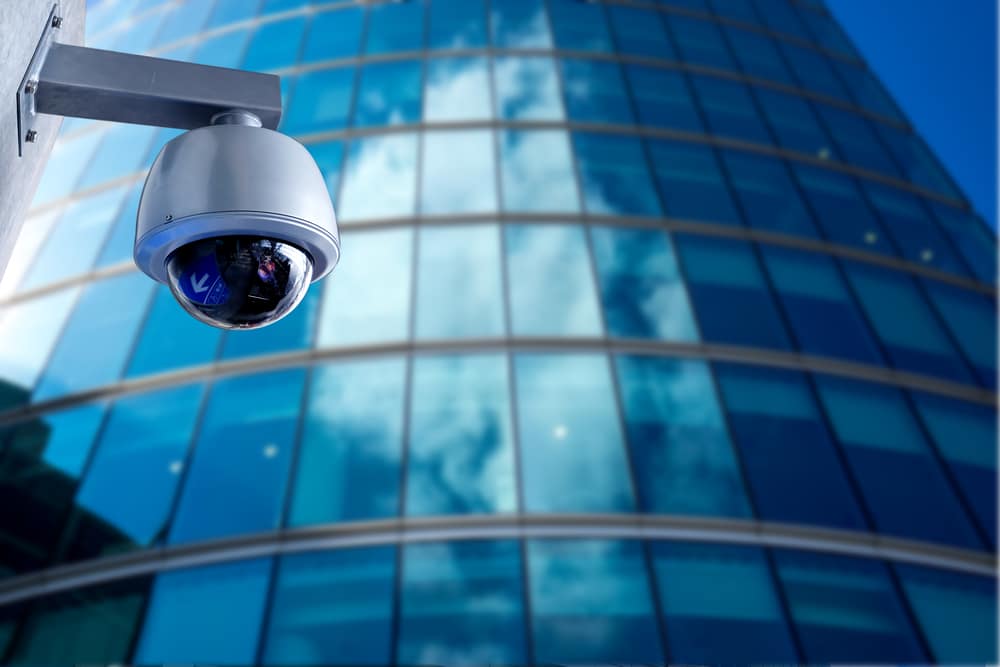Article At A Glance
- CCTV systems use cameras to monitor and record video feeds, providing security for businesses and homes
- CCTV offers benefits like remote monitoring, crime deterrence, and peace of mind for property owners and businesses.
CCTV monitoring systems are one of the best options for keeping a business or home safe and secure. Most people know about CCTV cameras, but the specifics of these systems may elude them. With that in mind, the team at Stark Security Inc. has created this quick guide on CCTV surveillance systems, including how they work and how they can benefit you.
Contact us today to speak to our security consulting experts and get the peace of mind you deserve!
What Is CCTV?
CCTV, or closed-circuit television, is a video monitoring system consisting of several cameras connected to different feeds. CCTV systems have a closed network, so any camera footage they record is not publicly available, making them ideal for private or sensitive operations.
Not surprisingly, CCTV systems date back to the 1940s and were originally used by the military to monitor rockets. In the 1950s and 1960s, CCTV systems became a popular security measure for businesses and homeowners alike. Live video feeds allowed people to monitor their properties in real time to deter crime and record evidence. CCTV systems also became more popular in public areas, such as street corners, for security and safety purposes.
Nowadays, CCTV systems are common in businesses and locations that need to manage crime and promote security, including the following:
- Banks
- Offices
- Retail outlets
- Public transit
- Schools
- Public streets
Types of CCTV Systems
Because CCTV systems are so ubiquitous, you might think they’re all the same. There are two major types based on the underlying hardware.
Analog Cameras
Analog CCTV systems use a separate physical network of cameras and monitors to transmit video feeds. Typically, these systems send images to a central location for real-time observation and recording.
Analog systems are not as commonplace as they used to be. They require substantial hardware installation, network infrastructure, and separate monitors and screens. Analog feeds are not encrypted, meaning other parties could theoretically access your feed without authorization.
IP Cameras
Most modern CCTV setups use digital IP (internet protocol) cameras to capture footage and stream it over the internet to a desired location. IP camera arrays are wireless and can stream to most internet-connected devices, so they don’t require separate hardware installation.
Modern IP systems also integrate advanced features like HD streaming/recording, motion detection, remote control, zoom capabilities, and video exporting. IP camera systems can also encrypt data, making it much more difficult for unauthorized parties to access video feeds.
CCTV System Parts
Regardless of whether they are analog or internet-based, all CCTV monitoring systems have the same core components.
Cameras
Cameras capture the images and send them to the monitor feed for viewing and observation.
Monitors
Monitors are screens that receive and display camera images. CCTV systems may rely on one monitor or use multiple monitors to display each camera feed simultaneously.
Recording
Most CCTV systems also have some kind of device for recording video feeds for future playback, such as DVRs and NVRs. Many modern camera setups use cloud-based systems to record and store videos.
Connector Cables
Connectors and cables physically connect to the cameras and transmit video feeds to the monitors and recording devices. Wireless CCTV systems use the internet and do not require separate connector cables to transmit video feeds.
Power Supply
Cameras and monitors also require a power supply. Systems may use outlet power or be directly wired into the building’s power grid. Some wireless cameras rely on batteries instead of direct power, allowing them to be used virtually anywhere.
Types of CCTV Cameras
At the heart of any CCTV system are the cameras that capture images. Below is a list of some of the most common and popular types of CCTV cameras on the market.
Dome Cameras
Dome cameras have a semi-circular shape that rotates and is resistant to tampering. The domes feature a low-profile design that makes these cameras less noticeable.
Bullet Cameras
Bullet cameras assume the traditional cylindrical camera design and are most common for outdoor surveillance. Their visibility and noticeable shape make them an effective deterrent.
Night Cameras
Night cameras have a special lens that can record images even in the darkest conditions for maximum surveillance and visibility.
Wireless Cameras
Wireless cameras transmit video feeds without requiring an additional network cable or a power source, making them ideal for locations without reliable power.
Benefits of CCTV
Closed-circuit video surveillance is a time-tested solution for safety and security problems. Below are some major advantages of investing in video surveillance hardware for your home or business.
Monitor Locations
The main advantage of CCTV is the ability to monitor locations from anywhere. For example, if you are a business owner and need to keep a watchful eye on the premises, remote CCTV monitoring lets you do so no matter where you are.
Deter Crime
Video surveillance monitoring systems also deter crime. The mere presence of a camera can make criminals apprehensive, so they are less likely to intrude on your home or business. Studies show that about 60% of burglars will pass over a potential target if there is a security or alarm system.
Record Footage
In the event that a crime does occur, CCTV cameras provide recorded evidence that police can use to identify and find the suspect. Security camera monitoring systems can also be used to review important events that happen in the workplace. For example, if an employee gets injured on the job, you can consult CCTV camera footage to get an objective playback of the event.
Peace of Mind
More generally, CCTV camera systems offer peace of mind. You can relax knowing that your home or business is monitored and that you can observe any problems that occur. You can also rest easy knowing that a camera system makes your property less likely to be targeted by criminals.
Closed-Circuit Television Systems and Video Surveillance Monitoring Solutions
Contact Stark Security Inc. online or call today at (773) 455-1220 if you would like to learn more about our CCTV monitoring systems and other video monitoring solutions.














